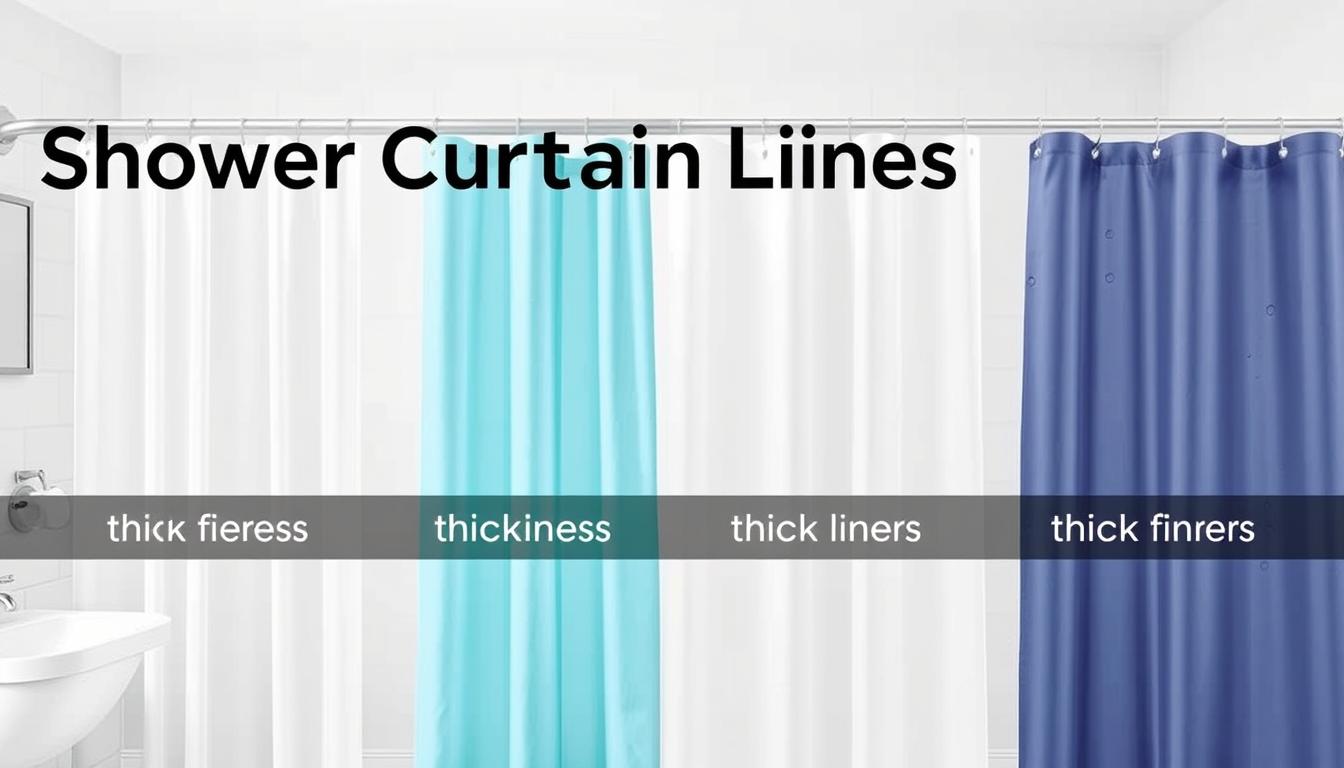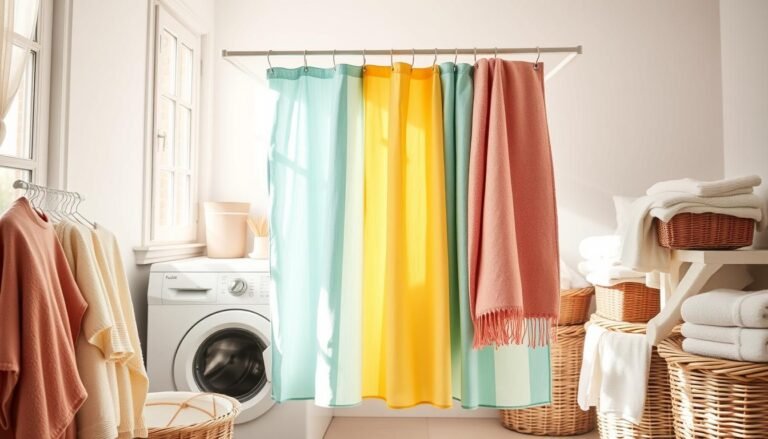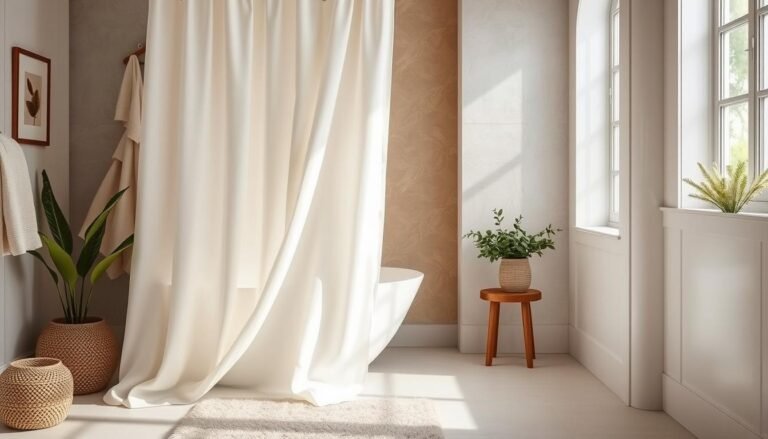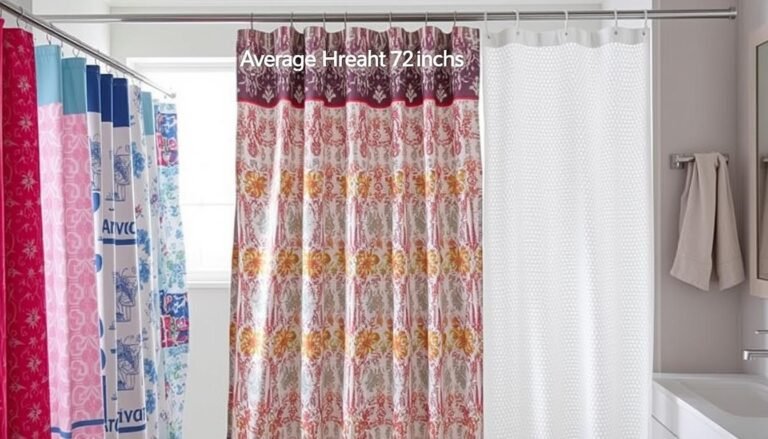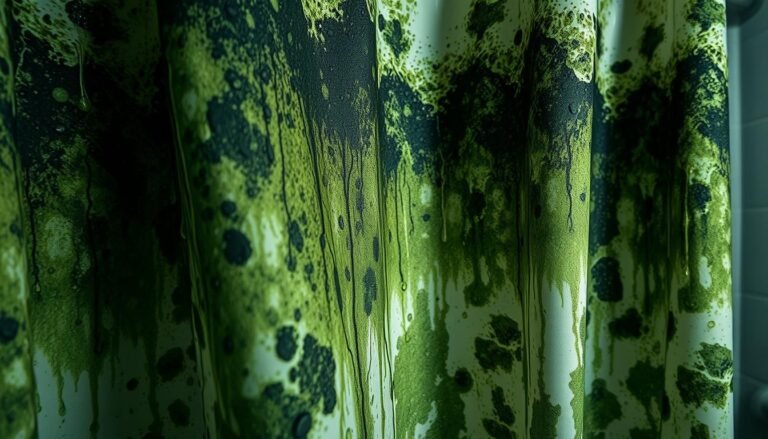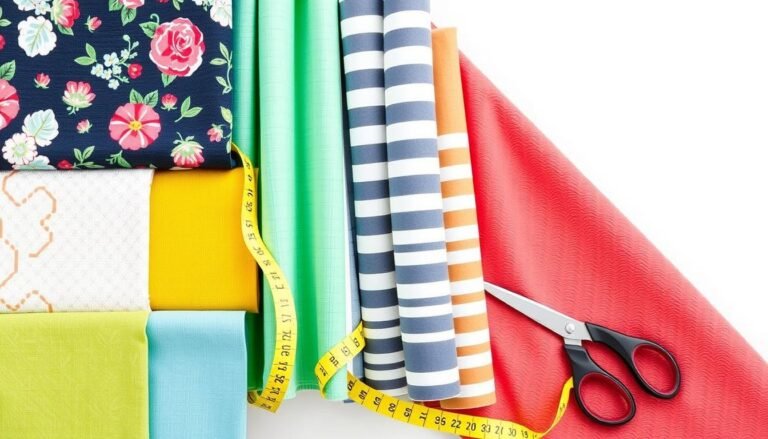Optimal Shower Curtain Liner Thickness Guide
Choosing the optimal shower curtain liner thickness is key for a great bathroom. This guide looks at what to consider for the best shower curtain liner thickness. It helps it match your style and last long. Brands like Threshold, Brooklinen, and Parachute offer different thicknesses. Each one brings benefits for various bathroom types.
Introduction to Shower Curtain Liner Thickness
When picking a shower curtain liner, thickness is key. It affects not just how well it works but also how your bathroom looks. This section explains the importance of thickness and what to know about it.
The weight, material, and size of a liner are important. For example, the PEVA liner is a common choice. It’s 72 inches long and wide, and weighs 1.7 lbs. Yet, 24% of reviewers aren’t happy with its thickness. This feedback is crucial when choosing a liner.
Eco-friendly liners are becoming more popular. They’re good for your wallet and easy to clean. The PEVA liner, for instance, is favored by 65% of reviewers. It’s important to choose the right thickness for the best experience.
Experts like the New York City Department of Sanitation recommend sustainable materials. They help make choices that are both eco-friendly and practical.
- Weight: 1.7 lbs
- Material: Polyethylene Vinyl Acetate (PEVA)
- Dimensions: 72.0″ L x 72.0″ W
- Percentage of Disappointment with Thickness: 24%
- Percentage Recommending Product to a Friend: 65%
- Mold Resistance Mentioned in Reviews: 11%
By 2031, the shower curtain liner market could reach $675.97 Million. This growth shows more people want quality liners. The PEVA segment, known for its affordability, plays a big role in this increase.
Hotel shower curtains usually measure 70 by 72 inches. For walk-in showers, they’re typically 34 inches wide. The right thickness, from 4 to 10 gauge, affects both durability and price. For most, a 5-6 gauge strikes a good balance, while a 7-8 gauge is better for heavy use.
Choosing the right thickness for your liner can make a big difference. Keep reading this guide to find out how to select the best one for you.
Factors to Consider When Choosing Shower Curtain Liner Thickness
Choosing the right thickness for a shower curtain liner is vital. It affects how well it works and lasts. These considerations help keep your bathroom clean and your liner in good shape.
Material Composition
Different materials make shower curtain liners more effective. PEVA plastic and polyester are among the top choices because of their durability and health benefits. PEVA liners are great at keeping water in the shower. This is because they are waterproof and don’t let water through.
Polyester liners need to be washed more but feel softer and are more breathable. It’s also important to pick liners that don’t contain harmful substances like phthalates and BPA. SlipX Solutions is known for providing such safe options.
Durability and Longevity
The thickness you choose affects how long your shower curtain liner will last. The best ones often use 12-gauge EVA material for strength and longevity. Heavy-duty PEVA or polyester liners, with a thickness of 0.7-1 mil, ensure the curtain hangs well and stays put.
How well you care for your liner also matters. Airing out and machine washing it can make it last longer.
Cost and Budget
Your budget will influence the thickness of your shower curtain liner. Thicker liners, like those made from EVA, cost more upfront but offer better features and last longer. Still, there are thinner, budget-friendly EVA options that perform well.
Thinking about how cost impacts long-term use is key to choosing wisely.
Environmental Impact
The material of your liner also affects the environment. Choosing PEVA or polyester helps because they don’t have PVC or harmful chemicals. Brands like SlipX Solutions add anti-microbial protection to their products. This doesn’t hurt the environment.
Look for eco-certified liners with anti-mildew features to help the planet.
To decide on the best thickness for your liner, examine material, durability, budget, and eco-friendliness. Your priorities in these areas will help you choose smartly. Check out this informative resource for more tips on selecting home products.
Standard Sizes and Thicknesses of Shower Curtain Liners
Choosing the right shower curtain liner size is important. It makes your bathroom look elegant and work well. This part will discuss standard thickness, widths, and lengths. These details help you pick a liner that fits well and makes your shower better.
Standard Thickness Measurements
Shower curtain liners have different thicknesses, measured in gauges. A higher gauge means a thicker liner. You can find 10-gauge and 12-gauge vinyl liners that are more than 0.01 inches thick. Different thicknesses affect how long they last and how they perform.
Widths and Lengths
Shower curtain liner sizes vary greatly. The most common size is 72×72 inches, which fits most tubs. For taller setups, there are longer curtains, and for showers, curtains are often 36 inches wide. Here are some examples:
- The Quiet Town Sun Shower curtain is made from 12-gauge EVA. It comes in widths of 72 inches and lengths of 72 or 84 inches.
- The LiBa Shower Curtain Liner is PEVA material. It’s available in five sizes, including extra-long and stall options.
- The Coyuchi Organic Waffle Shower Curtain is organic cotton. It measures 72 inches by 72 inches.
- The Parachute Linen Shower Curtain is European linen. It’s also 72 inches by 72 inches.
If you need a special size, you can find liners from 54×78 inches to 108×72 inches. This variety means you can get a perfect fit for any shower size. Features like metal grommets, weighted hems, and rust-proof grommets add value. They make choosing the right liner even more important.
It’s also vital to consider different materials like polyester, vinyl, and plastic. Each one has specific care instructions, like machine washing cold or air drying only. By looking at these details, you choose the right liner size and thickness. This choice improves your bathroom’s look and function.
Optimal Shower Curtain Liner Thickness for Different Bathrooms
Choosing the right shower curtain liner thickness matters a lot. It makes sure your bathroom looks good and works well. This is true for homes, hotels, and even small bathrooms. With more people looking for green and high-quality options, knowing what to pick is key. It makes your bathroom better.
Residential Bathrooms
PEVA & EVA liners are great for homes. They’re good for the planet and stop germs without bad stuff like chlorine. These liners don’t have much VOCs, making the air safer.
Fabric liners look warm and inviting. Made of nylon or polyester, they need regular cleaning. This keeps them from getting worn out. PVC liners are a no-go. They release phthalates, creating a harmful smell.
Hotels and Commercial Spaces
Hotels want liners that are fancy yet functional. Hotel quality shower curtain liners often choose thick, tough PEVA. These resist mold and avoid chemicals.
Fabric curtains are also chosen for their ease of washing. They last a long time if taken care of. The AmazerBath liner, with its heavy-duty design, guarantees strength and longevity. It’s ideal for busy spots.
Small Bathroom Solutions
In small bathrooms, smart choices help use space well. Light, PEVA & EVA liners work great. They protect and are simple to manage and clean.
They’re not heavy, so they don’t make the bathroom feel tight. Plus, they keep away mold and are safe from chemicals. The AmazerBath liner, with a clear look, makes areas feel open and light. It avoids making tight spaces feel even smaller.
| Bathroom Type | Recommended Liner Type | Benefits |
|---|---|---|
| Residential | PEVA & EVA, Fabric | Eco-friendly, Antimicrobial, Soft Look |
| Hotels & Commercial | PEVA Liner, Fabric | Mold Resistant, Durable, Machine Washable |
| Small Bathrooms | PEVA & EVA, Thinner Liners | Lightweight, Space Optimizing, Bright Appearance |
Durability and Maintenance of Various Thicknesses
The thickness of your shower curtain liner affects its durability and care needs. Whether you choose a light PEVA liner or a heavy polyester one, knowing how to maintain it is key. This helps your shower curtain liner last longer.
Care Instructions
Taking care of shower curtain liners properly is crucial. For the 20% that are machine-washable, use a gentle cycle and mild soap. For PEVA liners, which make up 80%, just use a damp cloth and soap. This keeps them free from soap scum. Air-drying fabric liners, like polyester, prevents wrinkles and keeps them from shrinking. Polyester liners need regular washing to stop mildew, since they hold moisture. In short:
- PEVA Liners: Wipe clean with soap and water; avoid machine washing.
- Polyester Liners: Machine washable on a gentle cycle; air dry to prevent wrinkles.
- Heavy-Duty Liners: Typically more durable; follow specific care instructions provided by the manufacturer.
Common Issues and Solutions
No matter the thickness, shower curtain liners face common problems. Heavy liners might hold water and sag. To fix this, use liners with good magnet attachments. Some high-quality liners have up to six. PEVA liners are waterproof and easy to clean, stopping water seepage. They are also good at preventing soap scum. On the other hand, though pretty, polyester liners need more washes to keep away mold.
Heavy fabric liners might shrink or wrinkle. Brands like Brooklinen or Threshold Waffle Weave are examples. Lighter PEVA or polyester liners, ranging from 0.7 to 1 mil thick, work better. They also have additives to stop mildew. These materials are anti-microbial too, keeping mildew away and ensuring cleanliness. For top results:
- Water Retention & Sagging: Use liners with weighted bottoms and multiple magnet attachments.
- Shrinkage & Wrinkles: Opt for polyester or PEVA liners and follow correct washing and drying practices.
- Mold & Mildew: Regular cleaning and quick-drying liners like polyester can prevent these issues.
| Material | Durability | Maintenance | Price Range |
|---|---|---|---|
| PEVA Plastic | High | Easy to clean, wipe down | $6 – $28 |
| Polyester | High | Machine washable, air dry | $10 – $28 |
| Heavy-Duty Liners | Very High | Follow manufacturer’s care instructions | $12 – $18 |
What is the Best Thickness for a Shower Curtain Liner?
Finding the right thickness for a shower curtain liner can seem tough. It’s key to think about how it works, lasts, looks, and its effect on the planet. This info helps you make a wise choice.
Recent studies show a 10 gauge thickness is top-notch for shower curtain liners. It’s strong yet flexible, so it doesn’t rip easily but is still simple to use. Aim for at least an 8 gauge thickness for a good mix of strength and flexibility.
Companies are stepping away from vinyl liners because they harm the environment. Most new liners are made from PEVA. This material is better for the earth and cuts down on bad chemicals. So, when choosing a shower curtain liner thickness, go for PEVA materials.
Thicker liners, like those around 10 gauge, often have extra stuff. Think suction cups or sticky clips to stop the liner from moving. These extras keep the liner in place, avoiding water on your bathroom floor.
To give more info, here’s a table from the research:
| Brand | Thickness | Material | Additional Features |
|---|---|---|---|
| Threshold Waffle Weave | 10 Gauge | 60% Cotton, 40% Polyester (White, Pink, Teal); 30% Cotton, 70% Polyester (Gray) | Suction Cups, Washer-Friendly |
| Brooklinen | 8 Gauge | 100% Cotton | Durable, Quick-Dry |
| Parachute Turkish | 9 Gauge | Long-Staple Turkish Cotton | High Durability, Elegant Design |
When picking the best shower curtain liner thickness, think about looks or how it works. Understanding these points helps you choose well. Balance the cost, materials, and features to find the perfect liner. It should last long, be easy to take care of, and meet your needs.
Environmental and Health Considerations of Shower Curtain Liners
It’s essential to know the health effects of shower curtain liners. This knowledge helps us make better choices for our homes and the planet. Vinyl liners are cheap but release harmful gases because they contain a lot of phthalates. These gases can cause headaches and nausea. Choosing safer options like PEVA and EVA liners is better for your family’s health.
PEVA and EVA liners don’t have chlorine and have fewer harmful gases, making them safer. They also prevent mold and mildew because they have anti-microbial properties. Even though PEVA and EVA liners cost a bit more than vinyl, they’re good for your health and the environment in the long run.
Fabric liners offer a nicer look but need regular cleaning to stop mold and mildew. For example, the Parachute Turkish Shower Curtain has a luxurious feel and lasts long. The Threshold Waffle Weave Shower Curtain offers many colors and is made of 60% cotton and 40% polyester. For various specialized shower curtain options, visit our guide at weighted shower curtain.
When picking a shower curtain liner, balance cost, quality, and being eco-friendly. Choosing liners like PEVA or EVA and watching for new anti-microbial features can make your bathroom healthier and greener for your family.

Hey there, I’m Alex Hanson and I’m passionate about all things covers! Whether you’re looking for a car seat cover to protect your vehicle or an oven cover to keep your kitchen clean, I’m here to help. With years of experience in the industry, I have plenty of knowledge and insights to share with my readers. So, if you care about protecting your belongings and making them look their best, you’re encouraged to read my blog as I explore the perfect cover for every need.

